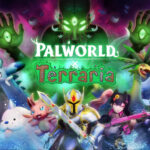Final Fantasy XIV’s latest field operation, Occult Crescent, launched with high hopes—but its 48-player raid, Forked Tower: Blood, quickly became one of the most divisive pieces of content in recent memory. Designed to evoke the challenge and scale of earlier large-scale raids like Baldesion Arsenal, Forked Tower ended up alienating much of the player base due to frustrating entry mechanics and punishing logistics.
Earlier this month, Square Enix rushed out emergency changes in response to growing criticism. The move came after mounting frustration over the game’s so-called “instance gacha,” where six separate eight-player parties would attempt to land in the same instance—often unsuccessfully. Now, thanks to the emergency update, preformed alliances of up to 48 players can enter the instance together, eliminating the chaotic matchmaking roll of the dice.
That’s just one of several fixes Square Enix is rolling out. Additional tweaks, such as reduced wait times for weather conditions that trigger the raid and UI improvements to the dungeon’s cipher system, are expected in Patch 7.3 next month.
The situation reached a turning point after Final Fantasy XIV producer and director Naoki Yoshida publicly acknowledged the issue. “I do feel that Forked Tower: Blood was a misstep in development,” he admitted during a panel at Anime Expo and in an exclusive follow-up interview with RPGSite. “It wasn’t meant to be hardcore content… yet, in the end, we made it too difficult for players to even get into the raid in the first place.”
Yoshida emphasized that the intention was to create something ambitious—but not punishing. Instead, the content became overly reliant on external coordination, complex weather timers, and a system that penalized individual mistakes harshly, leading to frequent run failures and community burnout.
The Forked Tower was originally introduced as part of the Occult Crescent field operation to bring back classic MMO-style overworld engagement. While some players praised the nostalgic feel of the environment, the actual execution, especially the entry mechanics for the raid, drew near-universal criticism.
In response, Yoshida and the team not only accelerated some of the 7.3 improvements but also began reworking the development roadmap to account for this feedback. According to Yoshida, these lessons will directly influence future content updates, including the upcoming Patch 7.5 and the next Deep Dungeon in 7.3, which will feature difficulty scaling to suit both casual and hardcore players.
Even with recent improvements, the fallout from Forked Tower has made it clear: communication, accessibility, and flexibility are now front and center in Creative Studio 3’s evolving development philosophy. Yoshida’s willingness to own up to the mistakes, combined with Square Enix’s faster-than-usual response time, suggests that the studio is taking player concerns seriously—perhaps more than ever before.
Whether these changes will be enough to restore momentum after what many are calling Dawntrail’s rockiest rollout yet remains to be seen.







